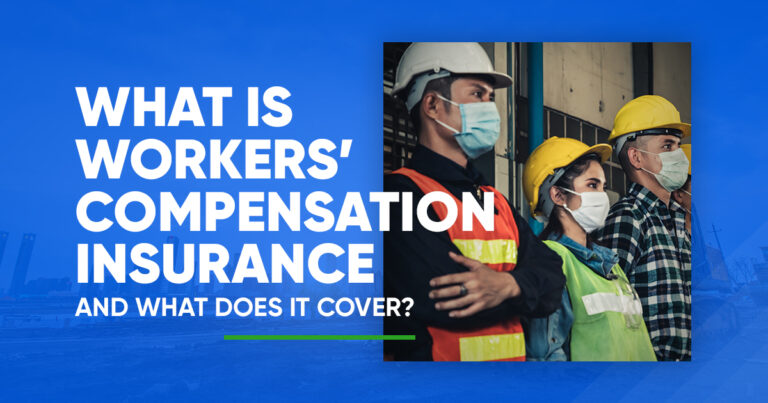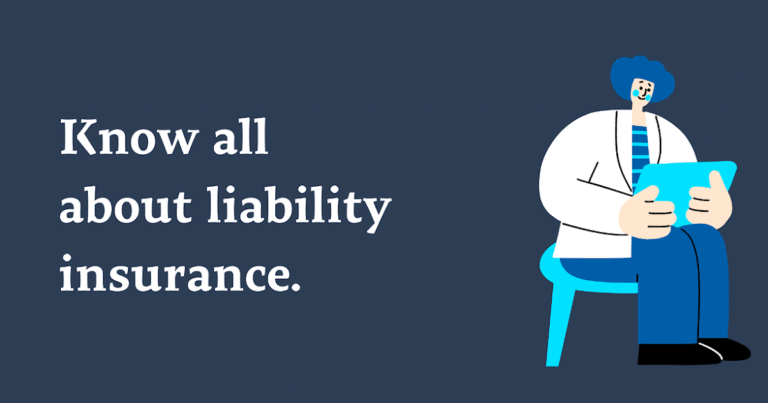Personal Umbrella Policy: Expanding Your Safety Net Beyond Standard Coverage
A Personal Umbrella Policy is exactly what it sounds like: an extra layer of protection that sits above your existing insurance. It kicks in when your auto, home, or renters insurance reaches its limits. Think of it as your financial bodyguard, stepping in when the unexpected turns severe and your standard policies cannot cover the full cost. Without it, you could be on the hook for expenses that stretch far beyond your insurance limits, putting your savings, assets, and future earnings at risk.
Here is the reality: accidents can spiral quickly. A car crash with multiple injuries, a visitor slipping on your property, or a lawsuit that balloons into millions could exhaust your base coverage. An umbrella policy is designed for those high-stakes moments when standard insurance simply cannot keep up.
What Personal Umbrella Insurance Covers
Bodily Injury Liability
If you cause an accident that injures someone, the medical bills, rehabilitation, and legal costs can skyrocket. Umbrella insurance ensures you are covered after your auto or homeowner’s liability limit is tapped out. This includes long-term rehabilitation costs or legal defense fees that often extend well beyond standard coverage.
Property Damage Liability
When damage to someone else’s property goes beyond your policy limits, umbrella coverage picks up the rest. This could involve car accidents, accidental destruction of expensive equipment, or even major property damage lawsuits involving multiple parties or businesses.
Personal Injury Lawsuits
Umbrella insurance covers more than physical injuries. It can also help with cases involving slander, libel, or defamation. In today’s digital world, a single social media post could spark a costly lawsuit. Umbrella insurance ensures you are not financially exposed to the unpredictable consequences of online or offline disputes.
Landlord Liability
If you own rental property, umbrella policies provide added protection against tenant injury claims or property disputes. It keeps you financially secure while maintaining your real estate investments and helps cover complex legal battles that may arise from landlord and tenant disagreements.
What Umbrella Insurance Does Not Cover
Your Own Injuries or Property
This policy does not cover your personal medical expenses or damage to your own property. Those are handled by health, homeowners, or auto insurance. Umbrella insurance is focused strictly on liability.
Business Activities
Unless specifically endorsed, umbrella insurance will not cover professional liability or incidents tied to business operations. Business owners typically need separate commercial umbrella policies designed to cover work-related exposures.
Contractual Obligations
Any financial responsibility you agree to in a contract is not covered under a personal umbrella policy. It protects against accidents and lawsuits, not business deals or personal agreements gone wrong.
Intentional or Criminal Acts
Just like with other forms of insurance, intentional harm or illegal activity is not covered. The coverage is designed for accidents and unforeseen events, not deliberate actions.
Why a Personal Umbrella Policy Matters
Protecting Your Assets
Your home, savings, investments, and even future wages could be at risk in a lawsuit. Umbrella insurance ensures you do not lose everything from one unexpected event. Even if you have modest assets, the potential of wage garnishment makes umbrella coverage essential.
Peace of Mind
It is not just financial coverage; it is the security of knowing you will not be ruined by one accident. You can live your life without constant fear of lawsuits and financial setbacks.
Affordable Coverage
Surprisingly, umbrella policies are often inexpensive compared to the amount of protection they provide. For a few hundred dollars a year, you can get millions in extra coverage that shields you from catastrophic financial outcomes.
Closing Coverage Gaps
Lawsuits can get creative. Umbrella policies add an extra layer that can protect you from unusual claims that might not be fully covered under standard insurance. This prevents small loopholes from becoming big financial problems.
Key Factors to Consider Before Buying
Coverage Limits
Decide how much coverage you need. Most policies start at one million dollars and can go much higher depending on your risk exposure and assets. If you have significant property, investments, or multiple vehicles, consider higher coverage amounts.
Existing Policy Requirements
Insurers usually require you to carry a minimum amount of auto or homeowners insurance before they will issue an umbrella policy. Make sure your base policies meet those standards, or your umbrella coverage may not activate properly.
Family Risks
Consider if you have teenage drivers, own multiple properties, or participate in activities that increase your liability risks. These factors can make umbrella coverage more critical and more cost-effective in the long run.
Insurer Reputation
Not all insurance companies handle claims the same way. Research providers to ensure you will have reliable support when you need it most. The claims process should be smooth, transparent, and customer-friendly.
Real-Life Scenarios
Major Car Accident
Imagine this. Your teenage child, still new behind the wheel, is driving home from school. A moment of distraction causes a multi-car collision on a busy highway. Several vehicles are damaged, people are injured, and the total damages climb quickly into the millions. Your auto insurance policy steps in first, but its coverage limit only goes so far. Once those limits are exhausted, you are personally responsible for every dollar beyond that.
That could mean paying for ongoing medical care for injured drivers, repairing luxury vehicles, or even handling lawsuits from passengers who claim negligence. Without umbrella insurance, your savings, retirement funds, and even your home could be at risk. With umbrella coverage, the policy picks up where your auto insurance stops, protecting your family’s financial future and sparing you from devastating out-of-pocket expenses.
Guest Injury at Home
Let’s say you invite friends over during the winter. As one guest walks up your icy driveway, they slip, fall, and break a leg badly enough to need surgery and months of physical therapy. Medical bills, lost wages, and legal fees quickly exceed the limits of your homeowner’s liability policy. In this situation, umbrella insurance becomes the safety net. It not only covers the medical expenses but also protects you if the injured guest decides to sue for negligence, arguing that you failed to clear your driveway properly. The legal costs alone can be enormous, even before a settlement or judgment. Umbrella insurance ensures that this unfortunate accident doesn’t turn into a financial nightmare.
Defamation Claim
We live in a digital age where one online post can create massive consequences. Imagine your teenager posts a negative comment about a classmate online. The classmate’s family decides to sue, claiming defamation and emotional distress. Standard homeowners or renters policies rarely cover this type of personal liability. Court fees, lawyer costs, and potential settlements in libel or slander cases can easily climb into six figures. Umbrella insurance steps in to handle the legal fallout, allowing your family to deal with the issue without financial ruin. Even if the case is eventually dismissed, the cost of defending yourself in court can be significant, which is exactly where umbrella coverage proves its worth.
Rental Property Lawsuit
If you own rental property, you already know it comes with unique risks. Imagine a tenant slips down a poorly lit stairwell and files a lawsuit, claiming unsafe conditions. The court awards them damages far beyond what your landlord insurance covers. Without umbrella insurance, you could be forced to sell property or liquidate assets to cover the costs. Umbrella coverage fills that gap, making sure your investment properties and your personal finances remain protected. This is especially important for landlords with multiple properties, where the potential liability grows with each rental unit.
Who Needs a Personal Umbrella Policy
Homeowners
Owning a home automatically places you at higher risk of liability. Your home is not just your living space, it is also one of your most valuable assets and often the first target in a lawsuit. Whether it is a delivery driver injured on your front step, a neighbor’s child hurt while playing in your yard, or damage caused by something on your property, homeowners face risks every day. If you own multiple properties, such as a vacation home or rental unit, those risks multiply. Umbrella insurance ensures that your home equity and future earnings are protected in case a liability claim goes beyond the limits of your standard homeowner’s policy.
Drivers
Every time you or someone in your household gets behind the wheel, there is a risk of an accident. The stakes are even higher if you have teenage drivers, who statistically are more likely to be involved in serious crashes. A major accident can leave victims with lifelong medical needs, and lawsuits for damages can exceed auto insurance limits by hundreds of thousands or even millions. Umbrella insurance gives drivers peace of mind that no matter how severe the accident, they won’t be financially destroyed by claims that surpass their primary auto policy.
Landlords
Landlords face risks that homeowners and renters often never think about. A tenant might sue for unsafe living conditions, wrongful eviction, or even personal injury on the property. While landlord policies provide liability protection, their limits are not always enough for major claims. Umbrella insurance acts as an extra layer of defense, safeguarding both the rental income stream and the property itself from being lost in a lawsuit. For landlords with several properties, this protection is not optional it is essential.
Professionals and Public Figures
If you or your family members are visible in your community maybe you are a business owner, a teacher, an athlete, or someone with a large social media following you are at higher risk of being sued. A single misunderstanding, public statement, or online post can trigger defamation or personal injury claims. Public visibility can make you a target, and standard liability policies often leave gaps. Umbrella insurance reduces exposure by covering lawsuits that fall outside the scope of traditional policies.
Best Practices for Policyholders
Review Your Assets
The first step in determining how much umbrella insurance you need is to take inventory of your assets. This includes your home, vehicles, savings, investments, and even future income potential. If your total net worth is one million dollars, then your umbrella policy should cover at least that much, if not more. The point is simple: your coverage should match or exceed what you stand to lose in a lawsuit.
Bundle for Savings
Many insurance providers offer discounts if you bundle your auto, home, and umbrella insurance together. This not only saves money but also simplifies claims management since all your policies are under one roof. For families juggling multiple coverages, bundling is a practical and cost-effective way to stay protected.
Update Regularly
Life is always changing. You might buy a new house, add a teenage driver to your auto policy, or purchase more rental property. Every major life change should trigger a review of your umbrella policy to make sure your coverage is still adequate. Failing to update your policy could leave you exposed in ways you never anticipated.
Understand Exclusions
Umbrella insurance is powerful, but it is not unlimited. For example, it does not usually cover business-related liability, intentional acts of harm, or certain contractual disputes. Always read your policy carefully and ask your insurer to explain exclusions in plain language. This ensures you are not surprised later when you file a claim.
Common Myths About Umbrella Insurance
It Is Only for the Wealthy
Many people assume umbrella insurance is only for millionaires. The truth is anyone with income, savings, or property has something worth protecting. Even modest assets are vulnerable if you are sued. The cost of a major liability claim can easily wipe out years of savings or force you into debt.
Home and Auto Insurance Are Enough
While home and auto policies include liability coverage, the limits are often quickly exhausted in serious cases. Medical bills, lost wages, and legal fees can surpass these limits within days. Umbrella insurance ensures that when the basic coverage runs out, you are not left paying the difference out of pocket.
Too Expensive
Umbrella insurance is surprisingly affordable. For the millions in coverage it provides, annual premiums are often less than what many families spend on monthly streaming subscriptions. It is one of the best value-for-money forms of protection in the entire insurance world.
Rarely Needed
Some people believe the chances of needing umbrella insurance are slim. The reality is accidents and lawsuits are more common than you might expect. All it takes is one major car accident, one serious injury on your property, or one lawsuit to change your financial situation forever. Umbrella insurance exists for those rare but devastating events that can happen to anyone.
My Closing Thoughts
A Personal Umbrella Policy is an affordable and powerful way to safeguard your assets, your family, and your peace of mind. It is not just a luxury; it is a practical step for anyone who wants to avoid financial ruin from an unexpected lawsuit. Whether you own a home, drive frequently, or have growing assets to protect, umbrella coverage ensures you are not left exposed when life takes an unpredictable turn.




